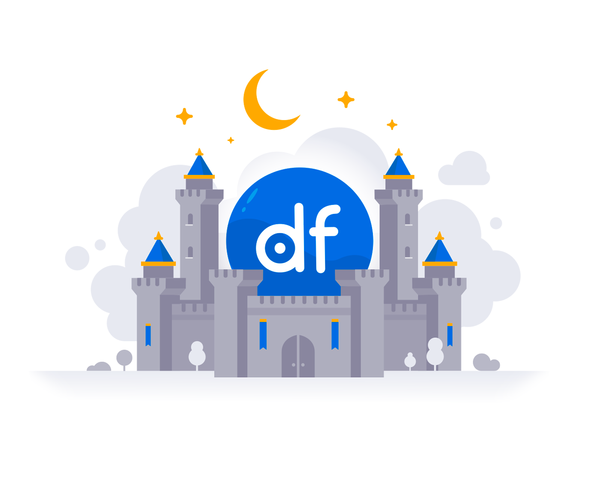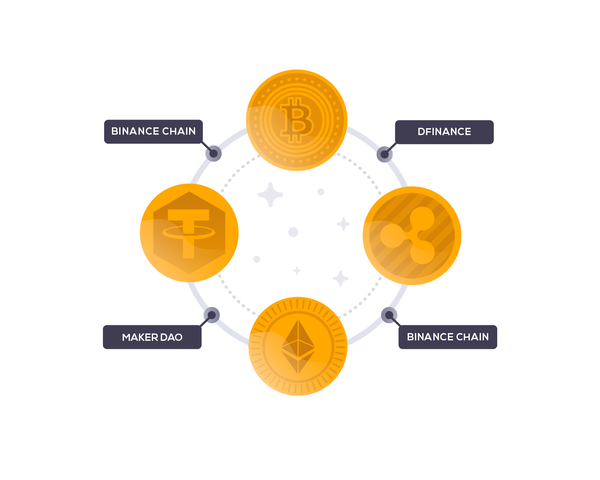
One may ask what’s so good about decentralized financial (DeFi) apps running on public blockchains. They are pseudonymous, non-custodial, inexpensive, fast, transparent, and censorship-resistant. Sounds good, right? Good yet maybe too abstract.
Indeed, DeFi offers a whole range of various financial apps for stablecoins, lending, decentralized exchanges (DEX), prediction markets, and asset management. There are features specific to each of those areas.
Right now, even the most popular DeFi apps have around 10,000 users but this is just the beginning. However, the ideology behind DeFi suggests that they have to be useful to as many people as possible, not just to finance experts and geeks.
Let’s take a look at this wide variety of DeFi applications. Maybe there is one you might need right now.
Why Would You Need a Decentralized Stablecoin?
In fact, this is a question similar to why you would need non-volatile Bitcoin.
Bitcoin is one of the first digital currencies which one can send anywhere, at any time, without any dependency on banks or other financial intermediaries. Unlike money in your bank account, bitcoins cannot be frozen or disappear into thin air alongside with the top management of a failed bank. Only the person with the private key can access them. Add a stable exchange rate to that (a feature that prevents bitcoin from becoming real functioning money) and you will get a decentralized stablecoin like DAI or AEUR.
Stablecoin transactions on public blockchains are faster and cheaper than bank remittances. However, they are not instant and not free. Off-chain networks and side chains are the closest we can get to “free and instant payments” formula right now.
Why Would You Need p2p Lending?
We already answered this question to some extent in one of our previous blogs: you may need it to utilize financial reserves in order to enjoy a better interest rate. Aside from leverage and passive income, there’s one more reason to use p2p lending you should know about.
When you exchange your cryptocurrency for fiat (or in some cases, for a different cryptocurrency), the exchange is a taxable event. This means that you have to pay a tax from the gains you got after selling your asset. However, if you borrow fiat using your cryptocurrency as a collateral, it is not a taxable event.
If you need fiat right now but you don’t want to sell your cryptocurrency because you expect it to gain in price, you can borrow fiat using your cryptocurrency as a collateral.
If you cannot get a loan from traditional financial institutions for some reason, DeFi solutions will likely be able to help you.
Why Would You Need a DEX?
You don’t have to be a trader to understand why you would need a DEX. It’s enough to know why using centralized (aka custodial) exchanges is risky.
The biggest risk is that you entrust your assets to the custodian. In DEX, there are no custodians. Unlike a centralized exchange, the administration of a DEX cannot freeze or embezzle your assets. DEX is but a set of smart contracts running on a public blockchain, and is therefore completely transparent.
That being said, liquidity and turnover of decentralized exchanges fall behind those of their centralized peers for now. Nonetheless, decentralized exchanges that offer margin trading with leverage of up to 4x and a passive income from crediting traders are gaining steam. Exchange smart contracts like Uniswap have a gas fee even lower than decentralized exchanges using order books. Those options are gaining momentum as well.
Why Would You Need Prediction Markets?
A prediction market is not a place where you can pay to learn about your inevitable doom. In most cases, it’s rather a decentralized app where you can bet on a certain turn of events and win cryptocurrency (or lose it), depending on whether or not your bet turned out to be correct. If you think that prediction markets are not for you because you’re no gambler, don’t be too quick to jump to conclusions.
People also use prediction markets for the sake of insurance. For instance, one may insure against Coinbase delisting ETC in 2019 or Carrie Lam remaining the chief executive of Hong Kong by mid-September 2019. There’s no market for an event you’re interested in? Make one and earn from it if it proves to be popular.
If it seems too complex, you can try DeFi apps dedicated to certain kinds of risks. Thus, you can insure your deposit against a hack if it’s in a decentralized financial app, or invest in an insurance pool. You can even buy an insurance policy against a hack of a centralized exchange. Or, you could sell such policies.
Decentralized insurance offers protection even for events unrelated to the cryptocurrency ecosystem, such as a flight delay or a hurricane.
Why Would You Need Asset Management Tools?
For some people, a bank deposit is the only available method of investment. Other people don’t even have a bank account, and DeFi provides an alternative opportunity for making an investment.
Asset management tools in DeFi include things like multi-currency wallets with exchange functionality and/or access to DeFi apps. You can keep dozens of crypto-assets from different blockchains in the same wallet and manage your cryptocurrency portfolio there. In the case of Abra, you can even use bitcoins in your non-custodial wallet for investment in top stocks.
If you don’t want to manage a cryptocurrency portfolio yourself, you can entrust it to portfolio managers or even a smart contract. Moreover, you can establish a fund for others to invest in.
***
This has been but a glance at the capabilities of decentralized finance. DeFi keeps on evolving as we speak. Stay tuned to keep your finger on that process!



